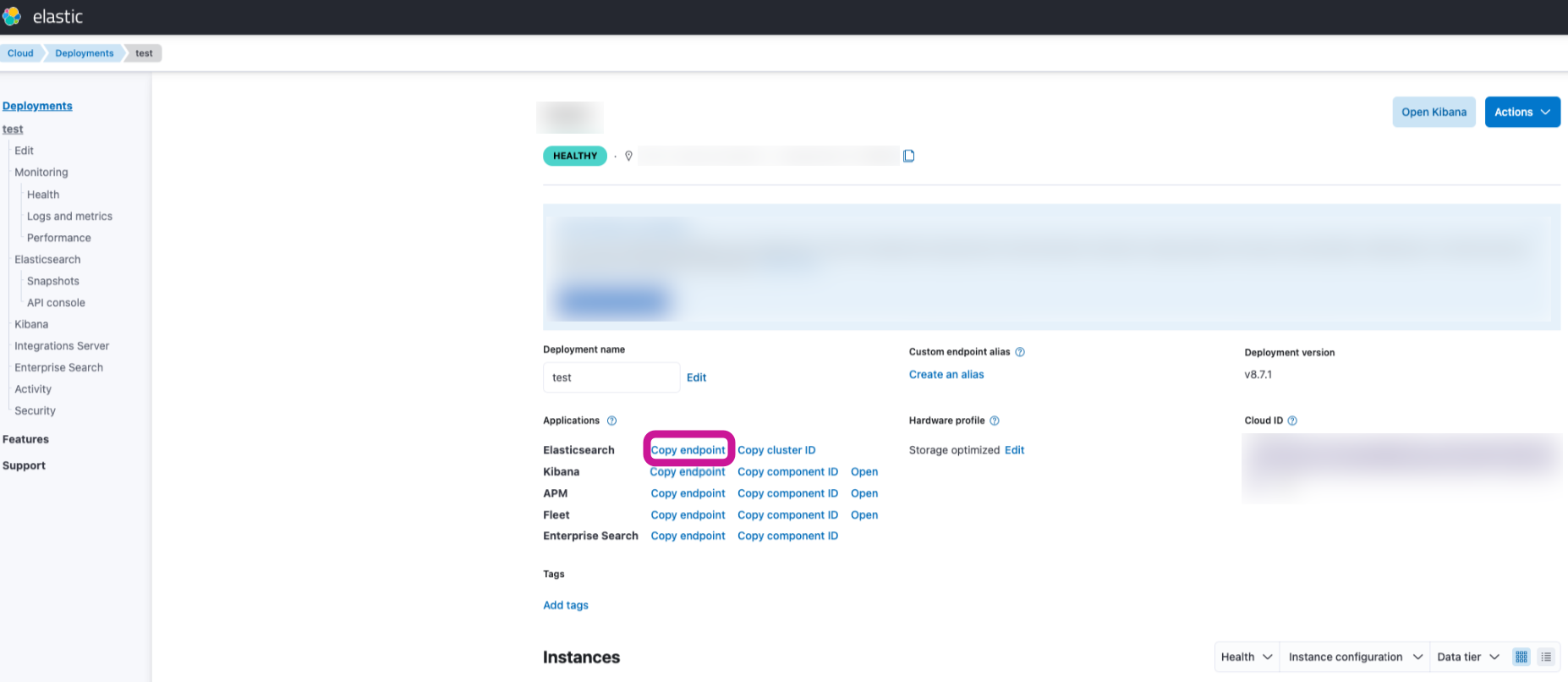Elasticsearch connection
Elasticsearch is a distributed, RESTful search and analytics engine that can handle a wide range of scenarios. As the heart of the Elastic Stack, it saves your data centrally for lightning-fast search, fine-tuned relevancy, and scalable analytics.
OpenSearch is an open-source, distributed search and analytics engine derived from Elasticsearch. It uses a document-oriented NoSQL model to index JSON documents, is built on Apache Lucene, and supports RESTful interaction, real-time search, and analytics at scale.
Both Elasticsearch and OpenSearch are based on similar architecture and API principles, letting seamless compatibility for most indexing and query operations.
Elasticsearch compatibility versions
| River Modes | Versions Supported | Support for Managing Schema Drift |
|---|---|---|
| Multi-Tables (Standard Extraction) | Scroll API Version 7.10 / Indexes API Version 7.10 / Mapping API Version 7.10 | No |
Prerequisites
You must set up your database's Host, Port, Username, and Password before connecting to Elasticsearch.
- If you are using a cloud Elasticsearch, the location of the Host is provided:

- If you are using an on-premise Elasticsearch, refer to the Elasticsearch.
- Without requiring any network configuration, Elasticsearch automatically binds to the available addresses and scans local ports 9300 to 9305 to establish connections with other nodes running on the same server.
Procedure
-
Navigate to the Data Integration Console.
-
Click Connections and select + New Connection.
-
Choose Elasticsearch.
-
Enter your Connection Name.
-
Enter the Host address.
-
Fill in the Port Number.
-
Enter your Username and Password.
-
Select the Server Type:
- Elasticsearch: Choose this option when connecting to an Elasticsearch cluster.
- OpenSearch: Choose this option when connecting to an OpenSearch cluster. This supports both self-managed and managed deployments (including AWS OpenSearch Service).
-
Click Test Connection to verify your connection is up to the task.
If the test is successful, you can use this connection within Data Integration.
